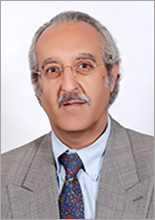Islamic Finance: Supervision and Governance
Islamic finance is generally poorly understood and often reduced to the notion that it prohibits the use of interest rates. Islamic finance differs from conventional finance in a number of aspects beyond the non-use of interest rates. It is essentially finance complying with Shari’a principles notably: profit and loss sharing (PLS) which mandates that risk be equitably distributed across all parties to a contract, the direct linkage of financing to economic activity, the prohibition of exploitation of one party by another and the prohibition of financing of non-Shari’a permissible (haram) activities such as the production of alcohol (El-Hawary, Grais, and Iqbal 2007).
Islamic financing has been growing rapidly at 10% annually in recent years, according to some estimates. In 2011, the African Development Bank estimated Shari’a compliant assets to exceed $1trillion worldwide with rapid bank asset growth from $386 billion to $939 billion from 2006 to 2010 alone. Sukuks, or asset-backed Islamic bonds, grew to $48 billion by 2010.
Modern Islamic finance can be traced back to the establishment of the Mit Ghamr Savings Bank in Egypt in 1963 and the subsequent rapid expansion of Islamic financial institutions (IFIs) in the Gulf Cooperation Council countries and East Asia throughout the 1970s. Recognizing the market potential, global financial institutions such as Citibank, Goldman Sachs, HSBC and Merryl Lynch have entered the Islamic finance market including through Islamic windows, a separate department within the institution governed by an independent Shari’a Advisory Board (El-Hawary, Grais, and Iqbal 2007). IFIs currently operate in at least 70 developed and developing countries worldwide (Moheildin 2012).
A unique global financial infrastructure has arisen to meet the supervisory and regulatory needs of IFIs including the creation of the Accounting and Auditing Organization for IFIs (AAOIFI), Islamic Financial Services Board (IFSB), International Islamic Financial Market (IIFM), and International Islamic Liquidity Management Corporation (IILM). Complementing national institutions, these international bodies promote standardization and harmonization across Islamic finance. They focus notably on soundness and stability through rules and guiding principles for the provision of finance, accounting and reporting as well as liquidity management. A separate body, the International Islamic Fiqh Academy affiliated with the Organization of the Islamic Conference, provides guidance on Shari’a compliance.
With many financial modes available for conducting Islamic finance intermediation, IFIs have tended toward the more conservative short-term, trade-based instruments such as mark-up financing (murabaha), which exceed 70% of total Islamic financing. Transactions, such as equity participation contracts whether in the form of musharaka, or mudaraba, are limited due to risks inherent to equity financing and the quality of institutional infrastructure and legal uncertainty in the major Islamic finance markets.
The concentration of IFI transactions in short-term assets is a result of their unique risk profile. The absence of a specialized institutional environment and an efficient regulatory system exposes IFIs to systemic risks related to legal, regulatory, and institutional issues, and raises IFI exposure to counterparty risks. These include the institutional risk that results from a lack of consensus among Fiqh scholars on rules governing financial transactions, which has created confusion due to the unsettled nature of contracts. The business environment risk, which results from lack of standardized contracts offered for Islamic financial instruments, and the absence of effective litigation and dispute resolution mechanisms further impede effective governance. Finally, fiduciary risk, where an IFI becomes legally liable for breaching its investment contract either for noncompliance with Sharia rules or for mismanagement of investment funds, scares away long-term investment (El-Hawary, Grais, and Iqbal 2007).
This risk profile poses unique challenges for regulators and policy makers. Due to their unique PLS requirements, IFIs incorporate features of conventional banking and non-banking financial activities. As a result, their regulation poses challenges to conventional finance regulators and supervisors. Significant national and international efforts have been made and are ongoing to deal with the foregoing. There is a prevailing sense that less emphasis should be put on capital adequacy and more attention should be paid to supervision, transparency, and information disclosure, with more reliance on market discipline to reduce IFI fiduciary risk. In practice, however, policy makers and regulators make little distinction (El Tiby and Grais 2014).
Islamic finance channels a significant amount of financial resources in the countries where it operates and across borders. Its mere size and rapid growth are opportunities for growth and financial inclusion at the same time as challenges to ensuring the soundness and stability of financial intermediation.
References
- El-Hawary, D., W. Grais, and Z. Iqbal. 2007. “Diversity in the Regulation of Islamic Financial Institutions.” In Essays in Honor of Dr. Heba Handoussa, published in a special issue of the Quarterly Review of Economics and Finance 46 (5) (February): 778–800.
- El Tiby, A. M., and Grais, W. 2014 “Islamic Finance and Economic Development: Risk, Regulation, and Corporate Governance”, John Wiley, New York, June
- Mohieldin, M. 2012. “Realizing the Potential of Islamic Finance.” World Bank Poverty Reduction and Economic Management Network (PREM), Number 77, March, pp. 1–7.
Wafik Grais is an International Senior Adviser specializing in Islamic finance, financial regulation, investment financing, private equity management, and corporate governance with expertise in SMEs and green growth financing. He was co-founder and chairman of Viveris Mashrek, a Cairo-based, financial advisory services company specialized in private equity investments in SMEs, licensed by Egypt's Financial Supervisory Authority. He spent 28 years in international finance notably with the World Bank in Washington DC where he held several senior positions both in operations and at corporate levels. He holds a Ph.D. in Economics.
